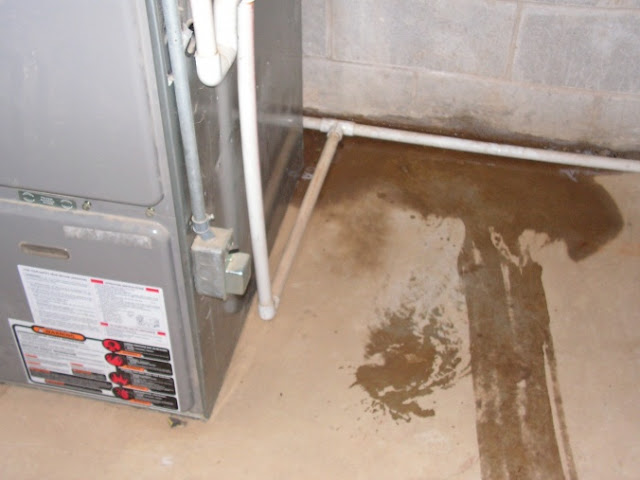As a responsible homeowner, you must be vigilant about the various systems that keep your home comfortable, especially during the colder months. A leaky furnace can be a significant concern, potentially leading to safety hazards and increased energy bills. In this guide, we'll explore the causes of a leaky furnace, steps to address the issue, and preventive measures to keep your heating system in top condition.
Steps to Address a Leaky Furnace
1. Inspect the Condensate Drain:
Start by checking the condensate drain for any clogs. If you find blockages, clear them using a vacuum or a thin brush. Regularly clean the drain to prevent future issues.
2. Check the Condensate Pump:
Examine the condensate pump for proper operation. If it's not working correctly, consider repairing or replacing it. A malfunctioning pump can lead to water accumulation and leaks.
3. Inspect the Heat Exchanger:
A professional technician should inspect the heat exchanger for cracks or other damage. If a crack is found, the heat exchanger may need replacement to ensure safe and efficient operation.
4. Evaluate the Humidifier:
Ensure the humidifier is connected correctly and set at the recommended humidity level. Regularly clean and maintain the humidifier to prevent water-related issues.
Preventive Measures for a Leak-Free Furnace
1. Regular Maintenance:
Schedule annual furnace maintenance to detect and address potential issues before they escalate. This includes inspecting the condensate system, heat exchanger, and other critical components.
2. Proper Installation:
Ensure your furnace and its components, including the humidifier, are correctly installed. Improper installation can lead to performance issues and water leaks.
3. Monitor Humidity Levels:
Keep an eye on indoor humidity levels to prevent excess moisture. Using a dehumidifier can help maintain an optimal balance and reduce the risk of leaks.
FAQs
Why is my furnace leaking water?
Furnaces produce condensation during the heating process. Water may leak if the condensate drain becomes clogged or the condensate pump malfunctions.
What causes a cracked heat exchanger?
Over time, the heat exchanger can develop cracks due to age, wear, or poor maintenance. A cracked heat exchanger can allow water to escape and may pose a risk of carbon monoxide leaks.
Can a humidifier cause a furnace to leak?
Yes, if the humidifier is not properly installed or maintained, it can cause water leakage. Ensure the humidifier is functioning correctly and not contributing to excess moisture.
By following these guidelines, homeowners can effectively manage and prevent leaks from their furnaces. Regular maintenance and proactive measures contribute to a safer and more efficient heating system, ensuring a comfortable home during the colder seasons.





No comments:
Post a Comment